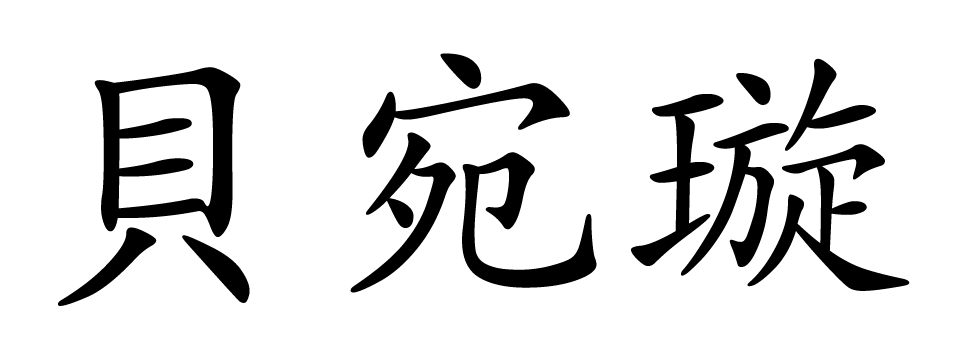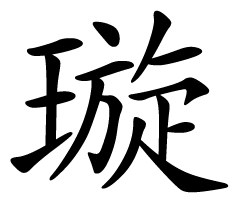After much deliberation, this:

is Olivia’s name in written in Chinese Characters. Like Victoria’s Chinese name [confusion.cc] it starts with “Bèi Wǎn”; Bèi being the family name and Wǎn because the tradition here (I don’t know if this holds in China or Taiwan too) is to name the kids with a common second character, so while Victoria is Bèi Wǎn Líng, Olivia is Bèi Wǎn Xuán.
The first to characters have the same meaning as for Victoria, so I’ll just copy what I wrote last time:
The first character, Bèi or Bui3 [wiktionary.org], according to Wiktionary, means “sea shell” or “money/currency.” Money as in they used to use little sea shells as money back in the day before coins. Bèi (or Bui3) was chosen simply because it has a nice meaning and sounds similar to the first syllable of “Beggerly.”
Wǎn or Yun2 [wiktionary.org] (unfortunately the pronunciation is radically different in Mandarin and Cantonese) means “seem” or “as if”.
The final character, Xuán or Syun4 [wiktionary.org], means “beautiful jade” or “star”.
The full translation then of Olivia’s name should be either “Sea shell, as if beautiful jade” or “Sea shell, as if a star.” But as the family name is not really relevant, Wǎn Xuán (or Yun2 Syun4) means “as if beautiful jade” or “Seems [to be] a star.”
It was a lot harder to pick Olivia’s name than it was to pick Victoria. The using the same middle character, 宛, really took some thought because we didn’t really like any of the various choices the fung shui guy provided for the third character. The few that were nice (and, crucially, that I could come anywhere near pronouncing,) have really bad Cantonese homophones so they were out automatically. As with Victoria, I hope that one day Olivia will appreciate all the effort we put into picking a name that not only has a nice meaning but sounds good to both Chinese and English speakers.



